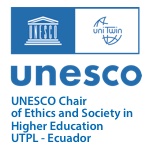The Problem of Evil
Abstract
Theism is the view that there is a God, omnipotent, omniscient, and perfectly good, a view shared by Christians, Jews and Muslims. The most powerful objection to theism has always been the objection that a perfectly good being would seek to prevent human suffering and wrongdoing, and an omnipotent being would be able to do so; and so, since humans suffer a lot, there can be no God. To rebut this objection the theist needs to explain why God, although omnipotent and perfectly good, would allow humans to suffer. To provide such an explanation is to provide what is called a ‘theodicy’. In this paper I shall offer my theodicy, a theodicy — as I shall illustrate — based on the teachings of Christ and their development in the Orthodox tradition.
Downloads
References
Mössner, Nicola; Sebastian Schmoranzer; Christian Weidemann (eds.) (2008). Richard Swinburne: Christian Philosophy in the Modern World. (Münstersche Vorlesungen zur Philosophie 2007: 11). Frankfurt: Ontos Verlag.
St Gregory of Nyssa (1954). On the Making of Man. In Select Writings and Letters of Gregory, Bishop of Nyssa. Translated by William Moore and Henry A. Wilson. (A Select Library of Nicene and Post-Nicene Fathers of the Christian Church, 2d series, vol. 5). Grand Rapids: Eerdmans, 1954.
St Gregory Palamas (1995). Topics of Natural and Theological Science. In Philokalia, IV, edited by in G.E.H. Palmer, P. Sherrard, and K. Ware. London: Faber & Faber.
St John of Damascus (1958). On The Orthodox Faith. In Saint John of Damascus. Writings, translated by Frederic H. Chase, Jr., 165-406. (Fathers of the Church 37). Washington, D.C.: Catholic University of America Press.
St John of Damascus (1981). On the Virtues and Vices. In Philokalia, II, edited by G.E.H. Palmer, P. Sherrard, and K. Ware. London: Faber & Faber.
St. Peter of Damaskos (1984). How God has done All Things for our Benefit. In Philokalia, III, edited by in G.E.H. Palmer, P. Sherrard, and K. Ware. London: Faber & Faber.
Swinburne, Richard (1998). Providence and the Problem of Evil. Oxford: Oxford University Press.
Swinburne, Richard (2013). Mind, Brain and Free Will. Oxford: Oxford University Press.
Copyright (c) 2020 © Analysis

This work is licensed under a Creative Commons Attribution-NonCommercial-NoDerivatives 4.0 International License.








